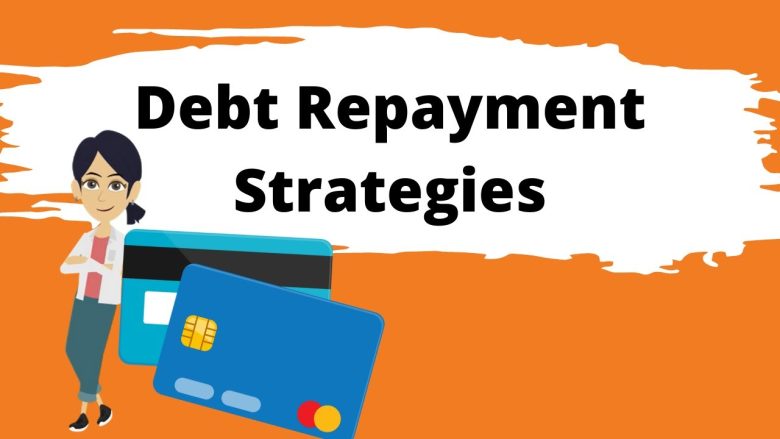Debt relief is a powerful fiscal measure. For many families, debt feels like an endless burden that limits savings and financial ambitions. With the right strategies, debt management can be manageable and satisfying. In this post, you’ll learn effective solutions for paying off debt in any financial situation.
Understanding Debt
Before you create a repayment plan, you need to evaluate your debts. Debt includes credit card debt, student loans, personal loans, and medical bills. Each option can have a different interest rate, minimum payment, and due date. Make a list of your financial obligations so that you understand them clearly. You can solve your debt problems systematically and transparently. Also, keep track of your annual interest payments. High-interest debt can quickly pile up, and without a plan, it becomes much harder to pay it off.
Budget Power
To successfully pay off debt, you need a solid budget. A budget can help you track your monthly expenses and find ways to save money. Start by tracking your income and expenses over two to three months. This approach will reveal hidden patterns. Spent more money on eating out than expected? Is your subscription set to your usage? If you put this wasted money toward debt, you’ll have more money left over to pay off your debt faster.
This can be simplified with a budgeting program that automatically categorizes expenses. If you stick to a reasonable budget, you can have more money left over to pay off your debt. With compound interest, small changes to your lifestyle can have a big impact.
Prioritize Debt Repayment
Because all debt is different, prioritizing your debt is key to optimal debt repayment. Start with the fastest-growing, high-interest debts. Typically, these are credit card or personal loan debts. By prioritizing “bad debt,” your loan payments will decrease over time.
Another approach is to pay off the smaller bills first. This may not make sense mathematically, but it can give you the psychological benefit of getting out of debt quickly. A sense of accomplishment can help you stay on track with your repayment plan.
Comparison of Snowball and Avalanche Methods
Common debt repayment methods include the snowball and avalanche methods. Both have their advantages, so the best choice depends on your financial goals and habits.
The snowball strategy involves paying off smaller debts first, then paying off larger debts. Once you pay off a smaller debt, you can roll it over to the next smallest debt. The snowball effect allows you to pay off your bills over time. Closing accounts can improve morale and motivation.
However, the avalanche strategy emphasizes high interest charges. While closing a personal account takes longer, it can reduce interest payments in the long run and save you money in the long run. This technique is best suited if lowering the cost of your loan is your primary goal.
Debt Consolidation Review
Debt consolidation can help you resolve multiple debts with different interest rates and due dates. This technique consolidates all of your debts into one low-interest loan. This makes paying easier and saves you money on interest in the long run. Debt consolidation loans are usually provided by banks, credit unions, or online lenders.
Another option for balance consolidation is a balance transfer credit card. Credit card balances can be transferred to one card with a promotional 0% interest rate. Be aware that after the promotional period, interest rates can increase significantly. Consolidation should only be used if you can meet the repayment requirements.
Seek Professional Help
Seek professional help if you are struggling. Credit brokers can help you negotiate lower interest rates and better terms with your creditors. For structure and accountability, consider a debt management plan (DMP). With a DMP, you make a single consolidated payment to a consulting firm, which then distributes it to your creditors.
If you are in serious financial trouble, a bankruptcy attorney may be able to help. If you have no other options, consider bankruptcy. Experts can provide you with tailored advice that is tailored to your specific needs.
Maintaining Momentum
A debt payoff strategy requires discipline and consistency. Celebrate small victories to stay motivated. Have you paid off your first credit card yet? Give yourself something small but meaningful. Surround yourself with people who understand your ambitions and support you. Avoid spending too much money with people who spend a lot of money, as this can pressure you to spend more.
Automation can also help with debt payoff. Pay on the same day each month to avoid late payments and missed deadlines. Finally, update your budget to account for income, expenses, and emergency adjustments.
Creating a Debt-Free Future
Paying off debt contributes to future financial stability. Once you have paid off your debt, you can save or invest the money you have earned. Build an emergency fund to avoid debt from unexpected expenses.
Financial education can help you make informed decisions. Understanding compound interest, credit scores, and investment options can help you plan and achieve your financial goals.
Conclusion
Paying off your debt is difficult, but not impossible. You can regain financial control by analyzing your situation, prioritizing your plans, and following proven strategies. Whether you use the snowball method for quick gains or the avalanche method for long-term savings, be persistent and proactive. Professional credit counselors and debt settlement tools can help you with this. Start achieving a debt-free future today.
FAQs
1. Which debt repayment strategy is most effective?
The ideal strategy depends on your needs and circumstances. The snowball strategy can provide psychological benefits, while the avalanche method can reduce long-term costs.
2. How does debt settlement work?
By consolidating your debts into one loan with a lower interest rate, you can simplify the repayment process and potentially save money.
3. Is professional help important?
Credit counselors and debt relief programs offer help and structure, while attorneys can help you through bankruptcy.
4. What can I do to avoid debt?
To avoid debt, you can create an emergency fund, create a budget, and learn financial literacy.
5. Should I never file for bankruptcy?
Although bankruptcy should be considered a final option, it can be the most effective solution for severe financial issues. Seek professional advice before making a decision.




